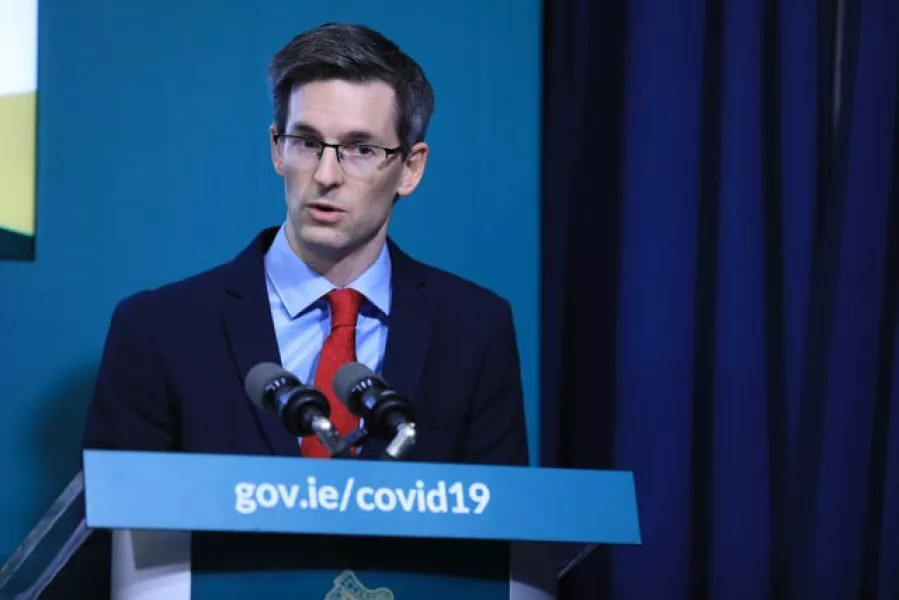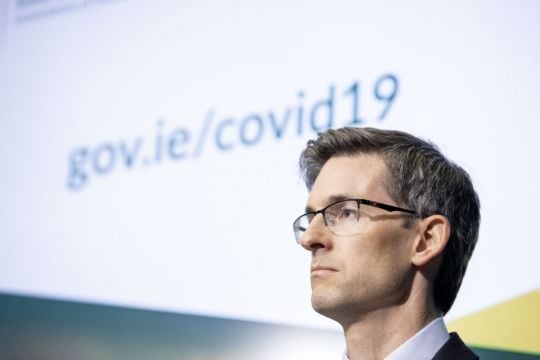Ireland’s acting chief medical officer has warned it would take only a couple of small super-spreader events to leave the country “in trouble”, given its incidence rate.
Dr Ronan Glynn told the Oireachtas committee on health that while Ireland was in a good position, there were uncertainties, particularly around emerging variants.
He said that the National Public Health Emergency Team (Nphet) hoped to give the Government advice by the end of the month about a plan to ease restrictions over the next six to eight weeks.
The health chief warned that there remained a “considerable risk” that Ireland would experience a further wave of infection if public health restrictions were eased too quickly.
You should always wear face coverings in offices and shared spaces. Learn more here: https://t.co/otWik2B9Aw#COVID19 #StaySafe pic.twitter.com/GVGhrcaXVK
Advertisement— HSE Ireland (@HSELive) April 13, 2021
However, he added that Nphet was not predicting a fourth wave, but rather it remained a possibility.
“Given the incidence we have at the moment, it would only require a small number of super-spreader events, particularly with a variant, to get us into trouble,” Dr Glynn said.
“We are in a very good position, we are the third best in Europe by incidence and I am hopeful we can stay there but there are uncertainties and we will continue to review and respond.”
Dr Glynn said that issues experts remained concerned about included the Brazil variant and the South Africa variant.
The committee heard that Ireland had reported 46 cases of the South African variant to date.
“We are concerned about B117 (UK variant), which is one we have dominant in this country, because there are further mutations emerging internationally and we have one or two cases also in Ireland with additional mutations,” he added.
Easing restrictions
“We are concerned about levels of variants, either levels or potentially increased levels of variants, particularly the impact of the effectiveness on vaccines.”
Dr Glynn told the committee that Nphet would review the data over the next two weeks and provide Government with updated advice on easing restrictions.
“I hope by the end of this month we can set out an indicative high level approach that we can hopefully adhere to over the next six to eight weeks that will get us through May, June and into July,” he said.
Senior health expert Professor Philip Nolan said the effect of vaccination was progressive.

“If half the adult population were vaccinated the virus would find it twice as difficult to transmit,” Prof Nolan added.
The chairman of the Irish Epidemiological Modelling Advisory Group said easing of restrictions should not be based on benchmarks of the proportion of the population vaccinated.
“What the model shows is that the impact of the vaccination is progressive. The more people that are vaccinated the harder it is for the virus to transmit,” he added.
In response to @RoisinShortall at Health Committee, Ronan Glynn says Nphet does not make a distinction between the EU and the rest of the world when it comes the criteria for entry to mandatory quarantine.
This is contrary to what Stephen Donnelly told @morningireland yesterday— Social Democrats (@SocDems) April 13, 2021
Co-leader of the Social Democrats Roisin Shortall raised the issue around mandatory hotel quarantine and the method used by the Government to decide which countries were added to the list.
“The Minister for Health (Stephen Donnelly) said the main criteria for selecting EU countries is the level of variance,” Ms Shortall added.
“Why is there a distinction between EU countries and the rest of the world?”
Dr Glynn said Nphet does not differentiate between the EU and the rest of the world.
“We do advise that in the first incidence the focus should be on variants of concern followed by countries with very high incidence followed by high incidence,” he added.







